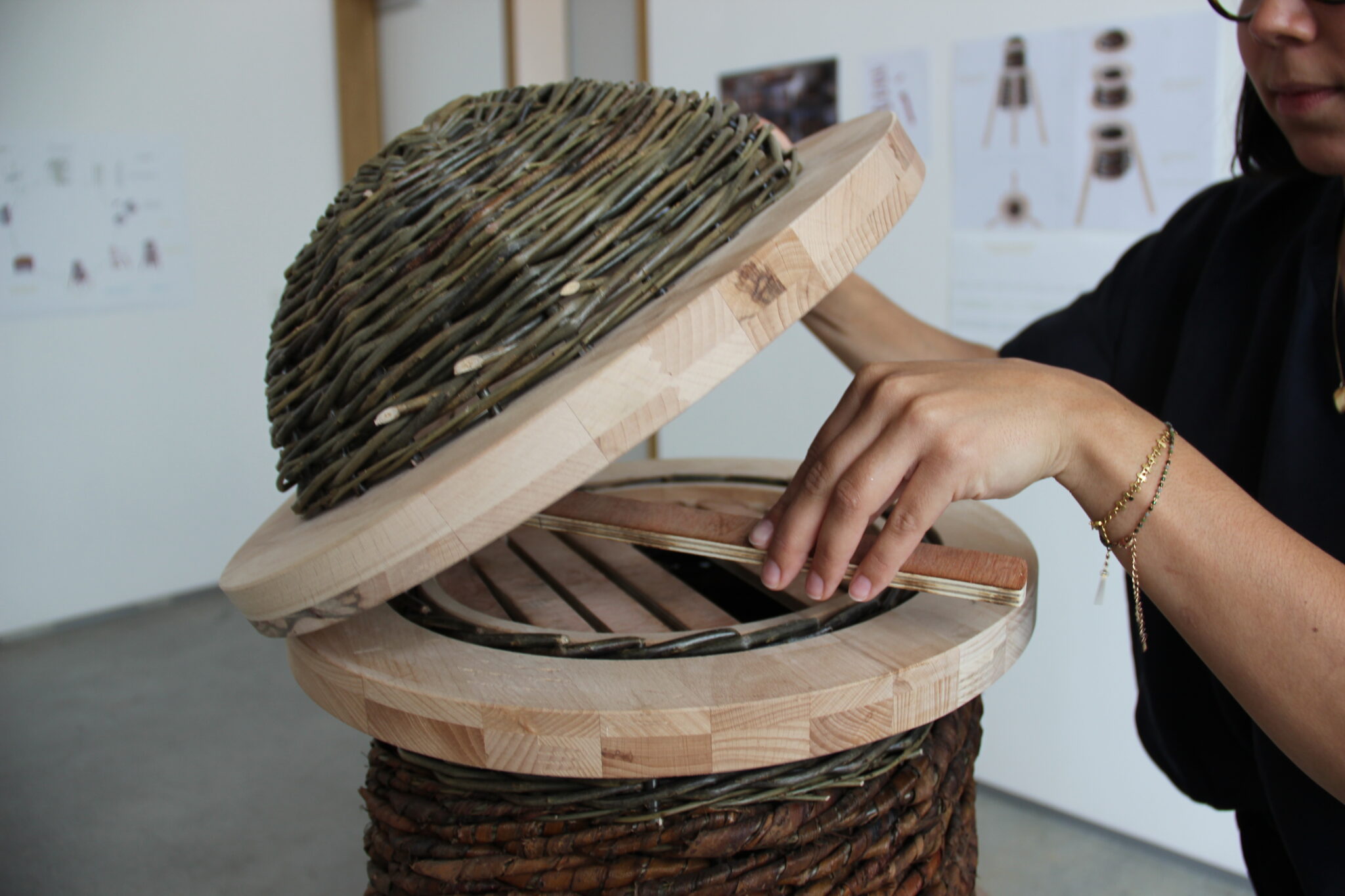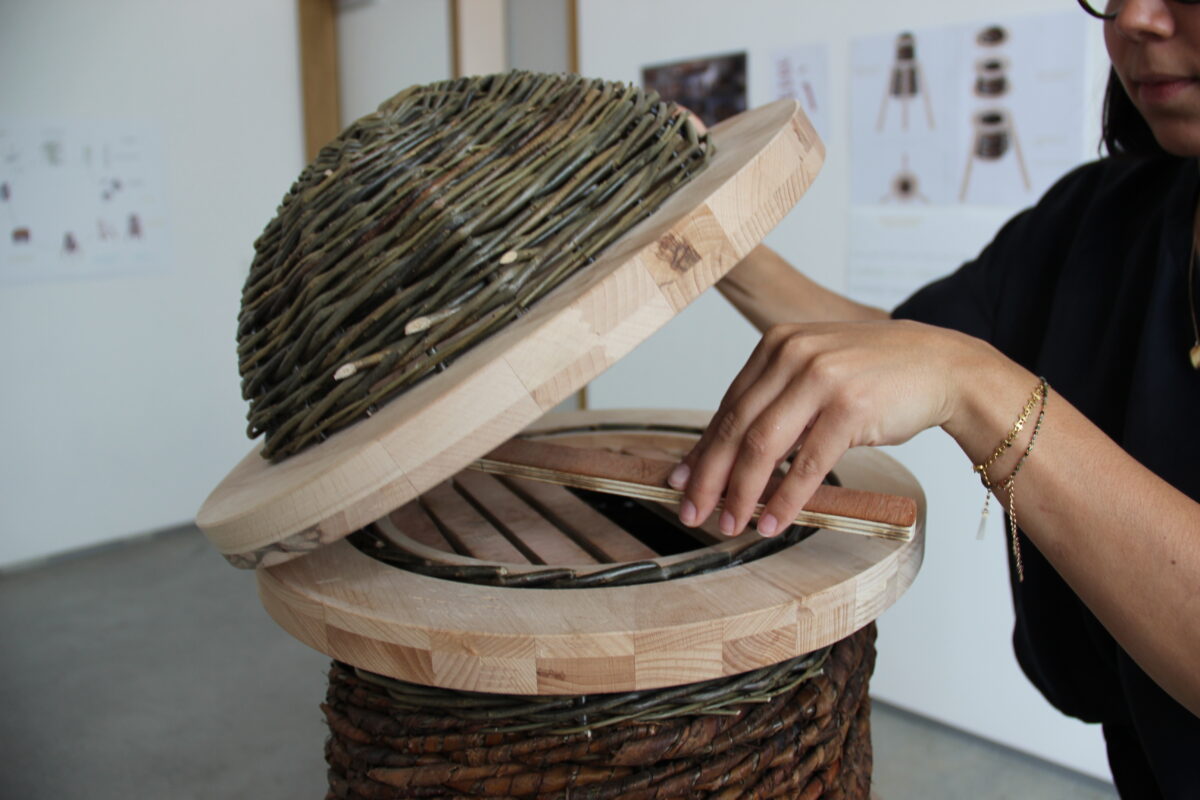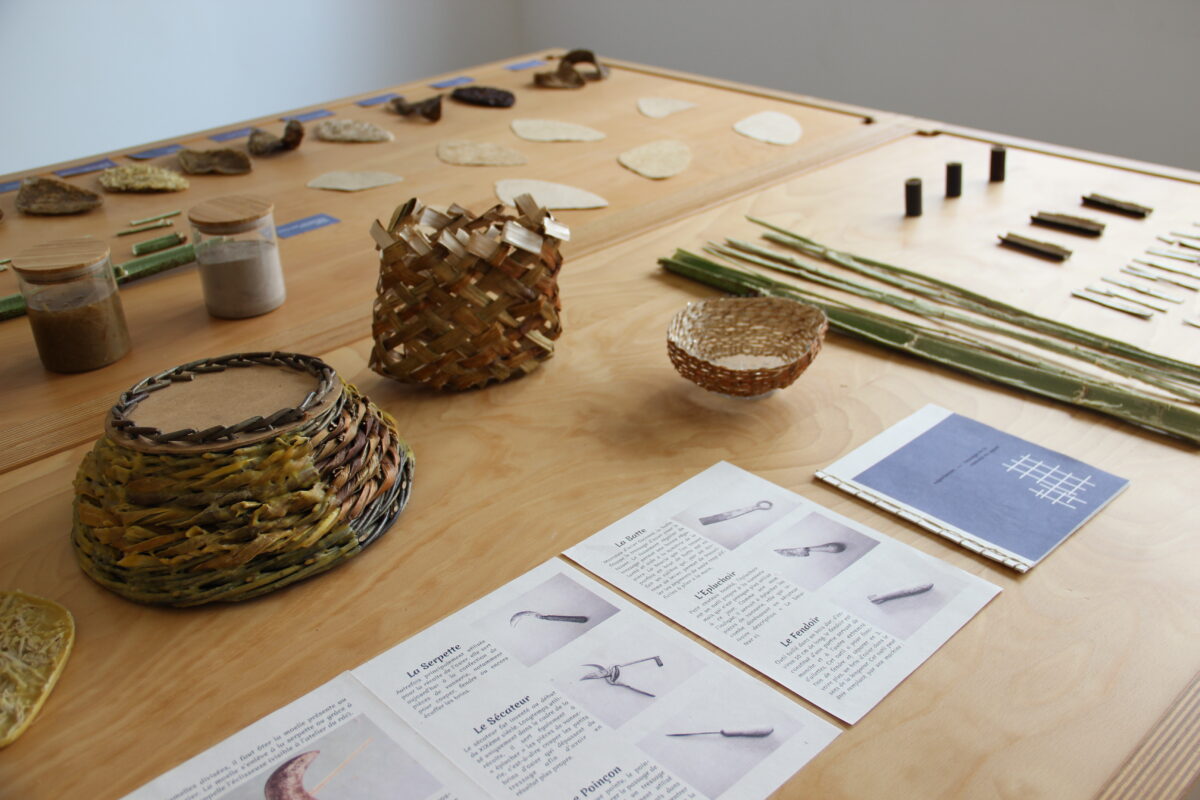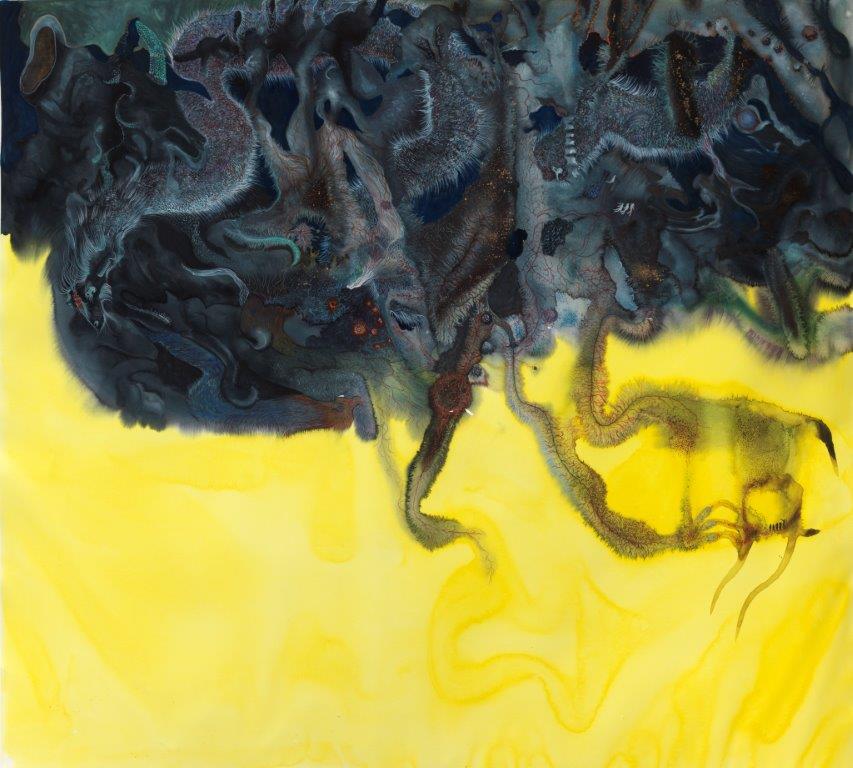
CALL FOR PROJECTS COAL PRIZE 2025: Freshwater
The COAL Prize 2025 dedicated to fresh water is a call to fight against the drying up of our sensitivities…

As part of the COAL – Culture & Diversity 2020 Student Award, four student projects have been nominated as finalists for this first edition. Each day, we offer you a meeting with one of the nominated projects.
Image credits: ©Maude Bayle, Maquette d’une ruche, 2020
Published on 1 June 2020
ABOUT MAUD BAYLE
A graduate of the DNSEP design object from the École nationale supérieure d’art et de design de Nancy and of the Master’s degree in Design and Materials from the École des Mines de Nancy in 2019, Maude Bayle places eco-design at the heart of her curriculum and her projects.
The objects she imagines each tell a story about the plant material: objects with cultural and symbolic value illustrating an environmental reflection.
In an internship in a clothing manufacturing company in the Vosges, in 2020, she acquired technical knowledge in order to introduce soft materials based on local invasive plants in the textile field.
PROJECT NOMINATED FOR THE COAL – CULTURE & DIVERSITY 2020 STUDENT AWARD : RENEWED
The plant material has become the best material alternative to inscribe the design in an effective approach of sustainable development. Maude Bayle chose to work on invasive plants, exotic plants introduced by man, capable of surviving and reproducing in a new environment to the detriment of local species. A consequent biomass that it decides to develop in a defined territory by creating an object useful for the restoration of the site from which it is immediately resulting.
Maude Bayle is interested in the Japanese knotweed, a melliferous plant (with the right properties to host honey-producing bees), imported into Europe in the 19th century and today the first invasive plant present in the Grand Est. In collaboration with local beekeepers and the Fayl-Billot Basketry Development and Promotion Committee, Maude Bayle is rethinking the contemporary beehive by setting up a protocol for transforming the plant, allowing her to design the knotted hive. Inspired by ancient straw hives, the knotted hive, made of braided and coiled knotweed stitch, consists of basketry parts that can be removed from its wooden base.
Maude Bayle tries to inscribe her creation in a coherent cycle: that of the annual temporality of the object and its use. These temporalities correspond to that of the plant in nature, harvested at the moment when it has the most qualities, and to that of the stages necessary to the manufacture of the material. The project aims to be established soon in the Jean-Marie Pelt Botanical Garden in Nancy. Maude Bayle is also working on the development of a textile material from the invasive plant in collaboration with the Laboratory of Textile Physics and Mechanics of the University of Haute-Alsace.
What is your relationship, as an artist or as a person, to environmental commitment?
As an artist and in the project I propose, my environmental commitment has been to try to create an object that, in its context, would be the most optimized possible from an ecological point of view. It is about making a hive from a plant material that is harmful to defined natural places. This hive has the function of activating the biological restoration of these places and accompanying the growth of plants that prevent the proliferation of invasives.
Personally, I try to produce myself the elements of daily life, both for me and for the people around me: food, hygiene products, clothing and home textiles. This allows for an immediate awareness of the types of materials we consume and where they come from. In addition, everyone has different skills that allow us to exchange goods and services and to advise each other.
How do you imagine the world to come?
I hope that in the coming world we will find a better balance between artisanal know-how and advanced technologies: that one is aware of the other in order to improve while remaining respectful of the planet. Trying to find more material alternatives also seems to me to be essential, by questioning obviously their origin, their manufacture, their duration and their end of life. Finally, I think that individual initiatives should be multiplied and diversified but that effective global change must obviously come from bold political choices. There is still a lot of work to be done to maintain the current economic system (especially after the health crisis we have just gone through), and to try to transform it in an ecological way. It is already an individual difficulty to succeed in developing and carrying out ethical projects while being able to live fully from them.
Featured image: © Maude Bayle, Model of a beehive, 2020
The COAL Prize 2025 dedicated to fresh water is a call to fight against the drying up of our sensitivities…
Created in 2019, the COAL Student Prize aims to support, through a residency in partnership with France’s Nature Reserves, students…
At a time when knowledge alone is no longer enough to motivate action, the Prix COAL 2024 calls for transformation…



